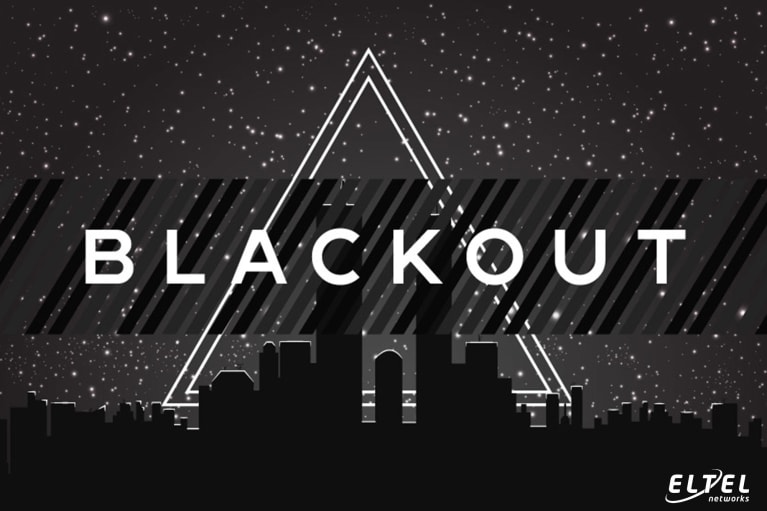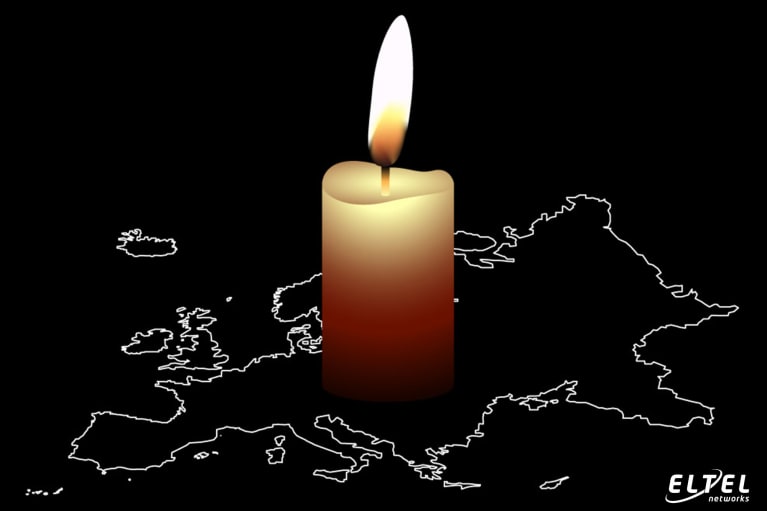
How to prepare for a massive power failure
One winter day, there is a power cut across Europe. People are running out of water, food, heating, medicines, money... Telephones, cash machines, means of communication, petrol stations, shops and hospitals stop working. It only takes a few days to reach a pandemonium of an unprecedented scale. It is not difficult to imagine this after having read the scientific thriller “Blackout” by Marc Elsberg. The book accurately depicts the black scenario of events resulting from a widespread power failure. Is it just literary fiction or perhaps a real threat in our reality? Maybe it is time to follow the example of the preppers and prepare for this eventuality...
As history shows, blackouts – the large-scale lack of electricity supply – has already happened, and not in sensational literature at all. The three largest power failures which have been noted in the world took place in India. During the most powerful of those, in 2012, 620 million people lost access to power for many hours, accounting for as much as 9% of the world population. The country was largely paralysed: trains stopped running because the electric traction conked out, roads became grid-locked because traffic lights did not work, many people got trapped in lifts, medical procedures were cancelled, large companies stopped working, and that blackout was relatively short, as it was not counted in days or weeks after all. The said phenomenon does not fall within the category of “conspiracy theories”. That happened and may happen again...
What is a blackout?
A blackout is a sudden electrical energy loss in power grids, and thus a lack in the power supply to homes, shops, schools, hospitals, banks, train stations, airports, streets... If the power goes off for a short time and/or in a small area, it is not usually a major problem, but if a blackout is prolonged and additionally affects, for example, a whole city, country or continent, as in the novel referred to here, the matters become very serious. Only then do people realise and personally find out how dependent they are on a constant supply of energy.
What happens then?
In the event of a blackout, everything may be thrown into the chaos in just a few days. Food runs out because its reserves (both those at homes and in warehouses) goes bad when not stored in fridges. There is a problem with water – water supply systems and water treatment plants do not operate. Nothing can be bought without cash, but cash machines do not work. It is difficult to communicate and find information: mobile networks are unavailable, electronic equipment needs power to function and it is not supplied, some parts of the Internet are no longer accessible at all. Ambulance or fire services cannot be easily called in the event of an emergency. Nor will adequate medical care be received in the hospital because without electricity it operates to a very limited extent.
It becomes less and less possible to move around: the means of communication powered by electricity are immobilised and those operated on petrol begin to run out of fuel. There are no trains, no flights, no metro. Everything is paralysed – cities stop functioning, people do not go to work, production is stopped, no deliveries are made, no refuse collection is provided, virtually no services are available. After nightfall, it is completely dark on the streets and they become more dangerous over time. Robberies and plunders become the norm. Priorities change, rules cease to apply.
And why is there no electricity?
What may lead to all of this, or what are the reasons for blackouts? There may be many reasons for a temporary power failure. However, if more severe and longer power failures are considered, they may be:
- a result of intentional terrorist acts (cyberattack and/or physical destruction of power equipment),
- a side effect of increased solar activity and magnetic storms, which affect the electricity on Earth,
- an effect of climate change, which contributes to the increased need for electricity and thus power distribution networks become overloaded,
- but above all, the consequence of relying on outdated infrastructure and the lack of diversification of energy sources, i.e., among other things, underutilisation of RES potential.
How to secure yourself in case of a blackout
Blackout should be taken seriously into account and possible power cuts should be considered in security activities at various levels – world-, EU-, country-, city-, business- and single household-wide.
Blackout – large-scale security
What currently seems to be the most important is to modernise outdated power grids. Given the climate projections for the world for the decades to come and the fact that the years 2022-2026 are to be abundant in the so-called solar storms, there may be a large number of overloads and failures in the near future, and any such failure is capable of causing a domino effect and changing a local fault into a large blackout if the system is not properly secured. This is because power grids across Europe are interconnected. When any segment of the grid fails, its functions are taken over by another segment, but this may easily cause another overload and failure take place. If this is the case, all the energy demand handled by these two sections must be taken by the next one (which is still operational), which however can also shut down due to being overloaded and obsolete solutions. In this way, the worst may occur if the power failure is not removed quickly.
Modernisation services for power lines and stations in Poland and Europe are provided by Eltel Networks. The company also provides the rapid removal of power failures in the case of short blackouts at industrial sites, minimising downtime caused by, for example, weather conditions that disrupt the grid operation or failures due to physical damage, such as a line that has been broken by a falling tree.
The second important issue in terms of global and local energy security is the possibility of using alternative energy sources. In the event of the real risk of power failure, it is worth having, in addition to coal and nuclear energy, the option of RES at hand too. Projects using, for example, wind or water for energy generation should therefore be developed more effectively. Wind farms and hydroelectric power plants, along with the modernisation of the power grid and the ability to act rapidly and effectively in the event of a potential power failure, are good anti-blackout protection.
Eltel Networks is one of the companies providing comprehensive electrical power engineering services. With many years of experience and crew competence, as well as high standards of work, it has been successfully implementing multi-purpose projects that require expertise and quick actions in crisis situations, including those that may result in serious power shortages.
In the event of a power failure, it is good to have access to local power banks. Such energy storage facilities should be located in every city or region to accumulate energy in case of a blackout. Unfortunately, it is not simple at this time. Power banks are lacking, and the unregulated PV market has resulted in large losses of energy, which is not collected anywhere.
Certain entities, such as Eltel Networks, implement such activities on their own, creating energy storage facilities (for energy from PV systems) for their own needs. For companies, it is certainly a very good idea.

In Europe, the NC ER (network code on electricity emergency and restoration) has been in force for several years now, and it sets out the rules for cooperation among all those relevant in the event of a blackout in Europe (significant network users, power suppliers, defence-related entities, etc.).
Blackout – individual protection
No matter how the country, city or individual companies are prepared for power outages, everyone should also be individually prepared to ensure that blackout, despite its sudden character, is not a surprise for them. Here is what can be done...
Have supplies of food, water and medicines for at least a few days at your home. It is best to provide yourself with food which can be stored without the need for cooling (dry goods, tinned food, etc.) and which do not require cooking before consumption. Bottled drinking water and a standard first-aid kit plus medicines that are used daily in various chronic conditions are essential. In case of a prolonged lack of power, it is also useful to have batteries, candles and matches or lighters. A tourist gas cooker with a spare of cartridges, a torch, a battery radio, a thermal blanket, and a traditional paper map of the surrounding area are also useful. Of course, you cannot forget about cash.
In addition, you must always remember to have your car fuelled, all power banks at home charged and, in case a blackout occurs, follow specific steps and adhere to certain rules.
What to do when there is no electricity? When still possible, secure a supply of water necessary for hygiene (fill the bath, pour water into bowls, etc.), unplug all electrical equipment (to protect it from potential damage in the event of an unstable electricity supply), be economical with food and substitute energy, eat food that may spoil first, do not waste heat... After all, you do not know how long the power cut can last.
In the event of a long-term lack of electricity it is slightly easier for people living in single-family homes who not only have more space for all kinds of supplies, but above all can have their own well, swimming pool, generator, food crops or a fireplace where they can warm up. It is also easier for them to manage without a functioning sewage system compared to, for example, the occupants of densely populated blocks of flats.
Blackout in Poland – is this possible?
Blackouts have already happened in Poland. One of the most serious power failures took place relatively recently, because it was just in 2008, in Szczecin, that the residents of the city were left without power for several hours. In Poland, a lack of power (for example, due to more severe climate conditions and increased demand for electricity at that time) is sometimes unnoticeable for end users as the electricity for the current needs is then “borrowed” or purchased from other European countries. However, it is worth remembering that the risk of blackout is always present and increasing. So, it is better to individually secure protection in this area, even though the Ministry of National Defence and the Government Centre for Security assure that Poland is well prepared for this type of crisis.
Read also: Eltel Networks - why is it worth cooperating with us?
Author: Tomasz Nowacki
